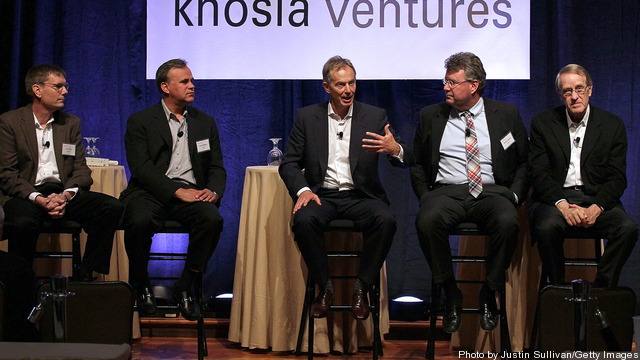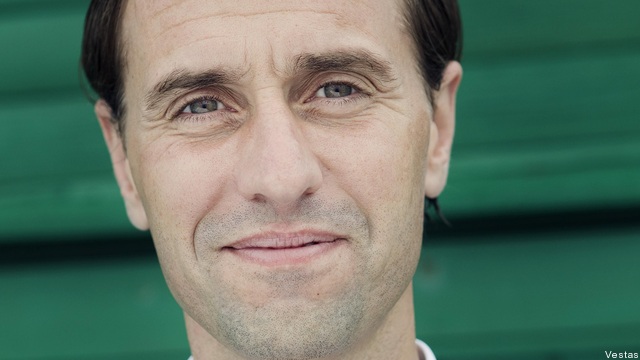 Soraa co-founder Steve DenBaars (2L), Calera CEO Brent Constantz (2R), and EcoMotors CEO Don Runkle (R) look on as former British Prime Minister Tony Blair (C) speaks during the Khosla Ventures Cleantech Discussion May 24, 2010 in Sausalito, California.
Soraa co-founder Steve DenBaars (2L), Calera CEO Brent Constantz (2R), and EcoMotors CEO Don Runkle (R) look on as former British Prime Minister Tony Blair (C) speaks during the Khosla Ventures Cleantech Discussion May 24, 2010 in Sausalito, California.
The cleantech market is a dynamic one, and market conditions affect available funds; a poor market inevitably affects business. Even though the second quarter of 2012 saw VC deals at their highest mark since 2001, green tech deal volume fell to a five-quarter low. Understanding this environment allows cleantech entrepreneurs to thoroughly prepare for investor pitches, acknowledge how their companies will address conditions, and forecast realistic revenues and market penetration. Keep reading →






 Organic Rankine Cycle Biomass Power System
Organic Rankine Cycle Biomass Power System

